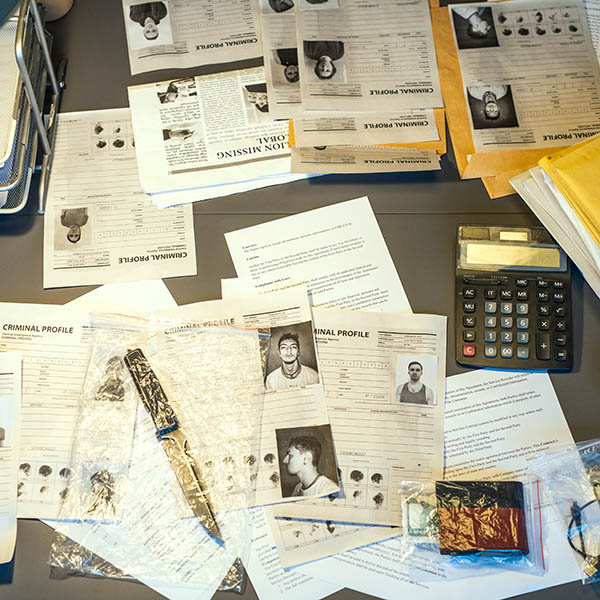About Us
Mission
The mission of the International Criminal Investigative Analysis Fellowship (ICIAF) is to provide a consistent standard of excellence in the service of law enforcement throughout the world by encouraging and maintaining the integrity and quality of criminal investigative analysis functions, behaviorally-oriented investigative techniques, and ICIAF generated research and training.

History
In 1972, the Federal Bureau of Investigation (FBI) Academy’s Behavioral Science Unit initiated criminal personality profiling on an informal basis, formalizing it in 1978. FBI profilers were specifically assigned the task of assisting law enforcement agencies in nonfederal investigations of crimes of violence in 1983. Cases involving a crime or series of crimes of violence that remained unsolved, whereby all investigative leads had been exhausted, were then submitted to the FBI for criminal personality profiling.
In 1984, the FBI’s National Center for the Analysis of Violent Crime (NCAVC) initiated a program that offered training to law enforcement officers from states within the United States in the analysis of criminal behavior; specifically, criminal investigative analysis/personality profiling. This training program was initially named the National Criminal Investigative Analysis Fellowship (NCIAF), and in 1989, one non-USA citizen from Canada and one Dutchman were among those police officers trained by the FBI. During the following year, two Australians, and another Canadian were also included in the FBI training program. The NCIAF was then re-named the International Criminal Investigative Analysis Fellowship (ICIAF), and those officers (Fellows) who had completed the program returned to Quantico, Virginia annually for in-service meetings.
When the FBI discontinued their training program of police officers from other jurisdictions in 1991, several Fellows attending the 1992 ICIAF annual meeting designed an understudy program to replicate the training they had received from the NCAVC. The ICIAF has trained understudies from various countries, including Australia, Canada, the Netherlands, the United Kingdom, and the United States.
Today
The ICIAF is comprised of two divisions: the Criminal Investigative Analysis Division and Geographic Profiling Division. The Federal Bureau of Investigation defines criminal investigative analysis as a process of reviewing crimes from both a behavioral and investigative perspective. It involves reviewing and assessing the facts of a criminal act, interpreting offender behavior, and interaction with the victim, as exhibited during the commission of the crime, or as displayed in the crime scene. According to a leading geographic profiling expert, Dr. Kim Rossmo, geographic profiling is an investigative methodology that uses the locations of a connected series of crimes to determine the most probable area of offender residence. Its major function is suspect prioritization and information management. The technique has been used in cases of serial murder, rape, arson, robbery, bombing, and burglary.
Members in each division include Full Fellows, Associate Fellows, Understudies, and Honorary members. Throughout the history of the ICIAF, members have joined from all over the world and represented a vast number of law enforcement agencies. Some of these agencies have included the following:
Australia
- New South Wales Police Force
- Queensland Police Service
- South Australia Police
- Victoria Police
Canada
- Calgary Police Service
- Ontario Provincial Police
- Royal Canadian Mounted Police
- Sureté du Québec
Netherlands
- Dutch National Police Agency
- Regional Police for South Limburg
United Kingdom
- National Crime Agency
United States
- Bureau of Alcohol, Tobacco, Firearms and Explosives
- California Department of Justice
- Federal Bureau of Investigation
- Florida Department of Law Enforcement
- Food and Drug Administration
- Georgia Bureau of Investigation
- Illinois State Police
- Iowa Division of Criminal Investigation
- Los Angeles County Sheriff’s Department
- Minnesota State Police
- Naval Criminal Investigative Service
- Nebraska State Patrol
- New Jersey State Police
- New York Police Department
- Pennsylvania State Police
- South Carolina Law Enforcement Division
- Texas Rangers
- Transportation Security Administration
- Virginia State Police
